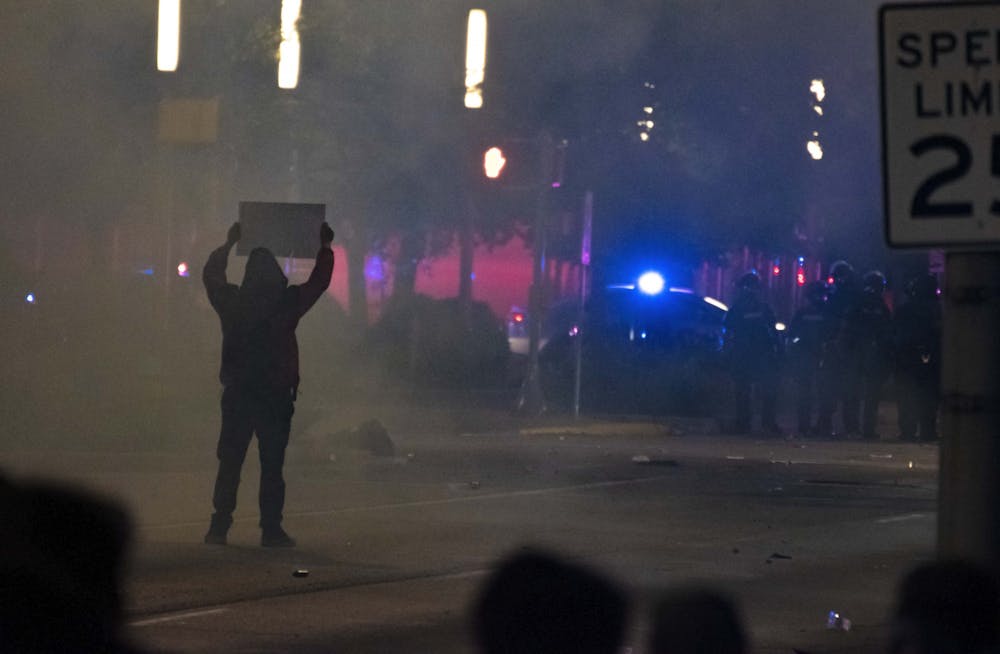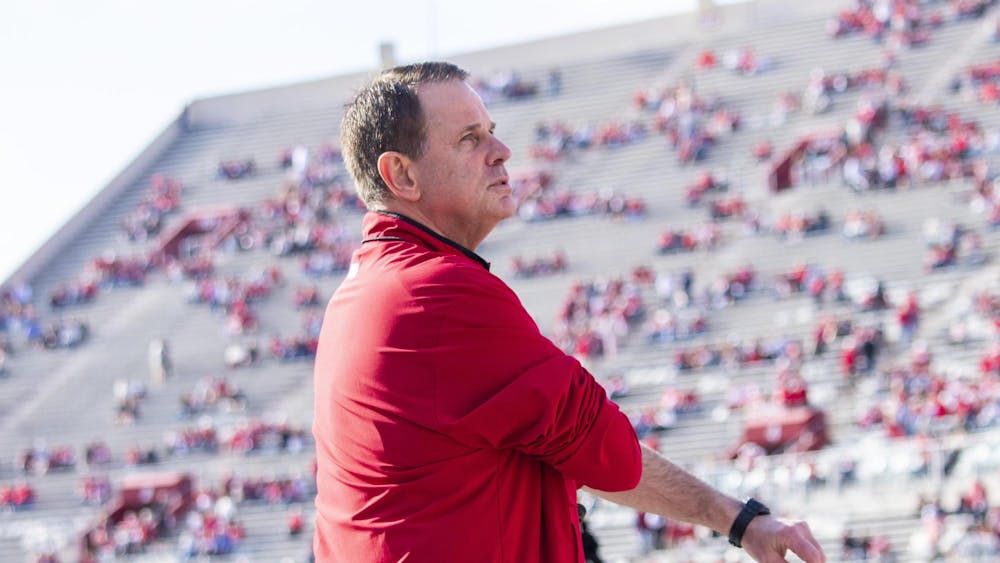Social media has introduced us to a selfish act that ruins the vision of a social movement — performative activism.
I believe performative activism is the act of speaking out about a cause for the advancement of one’s social image rather than to support and bring awareness to the injustice taking place. Performative activism is so common it often goes unnoticed.
“Stand with us wholeheartedly or stand aside,” said Mariame Sow, co-president of the IU chapter of NAACP.
Protests broke out around the world following the murder of George Floyd in May, with some ending in tragedy. A protest in Kenosha, Wisconsin, was held for Jacob Blake on Aug. 25 which ended with the death of two protesters.
Most people saw these heartbreaking situations as an opportunity to speak out and make it known Black bodies must be protected. But for many, it was an opportunity to join a trend that we continue to see today.
“You don’t pick and choose when to be down for the movement because it is a trending topic,” said Sow. “You can’t stand for Black bodies because it is a hot commodity and you don’t want Black consumers to boycott your business."
In order to show solidarity within the Black music industry and bring awareness to the current events in the Black community, #blackouttuesday was held June 2. Although it was for a good cause, Blackout Tuesday was taken advantage of and seen as an opportunity to “be down for the cause.”
Black squares were plastered all over Instagram. More than 29 million people shared a black square on their pages while posting hashtags with names of victims of police brutality.
There were more than 29 million blackout Tuesday posts but fewer than 20 million signatures on the petition to bring justice to George Floyd.
This is the epitome of performative action. People join a movement because they have something to prove. It looks as though “I’m not racist” was written all over their faces.
During Black Lives Matter protests, Instagram influencers were caught using the march as a photo opportunity. They used streets, protesters and destruction as a background for their newest post. It is insane to think someone would use the death of a human being to bring attention to their feed.
How self-absorbed can you be? But then again — this is America.
When the NBA started back up, players used their platform to speak out. James was quoted saying, “ I hope we made Kaep proud.” In 2016 former NFL quarterback Colin Kaepernick took a knee during the national anthem at the final exhibition game against the San Diego Chargers.
Kaepernick’s kneeling was widely frowned upon, and he lost his job in the NFL. Most people thought sports should be left out of his protest.
But now protesting racial injustice within sports is more widely accepted. There is a possibility we are being bamboozled into watching sports because these players are Black and taking a knee. This could very well be performative activism because teams are trying to drive up ratings since they cannot sell out arenas.
Kaepernick’s stance was not accepted in 2016. Why is it being accepted now?
“In today’s world of social media people want to do the right thing when the right people are looking. For the likes, views and validation,” Sow said.
Another form of performative activism that was displayed in late June is the memeification of Breonna Taylor’s death.
Many have posted pictures of themselves with captions such as “Anyways, Breonna Taylor.”
This doesn’t help bring awareness to her death. The picture itself gets the attention from viewers — not the caption.
A tweet from Zellie Imani on June 23 reads, “Drink water. Use seasoning. And arrest the cops who killed Breonna Taylor.”
Breonna Taylor was also put on the cover of September issues of Vanity Fair and O, The Oprah magazine. Although these magazines had good intentions, the message of loving Black bodies should be expressed without someone having to lose their life.
A message is not being displayed but a trend is being followed.
“Black lives matter today, tomorrow and forever,” Sow said.






